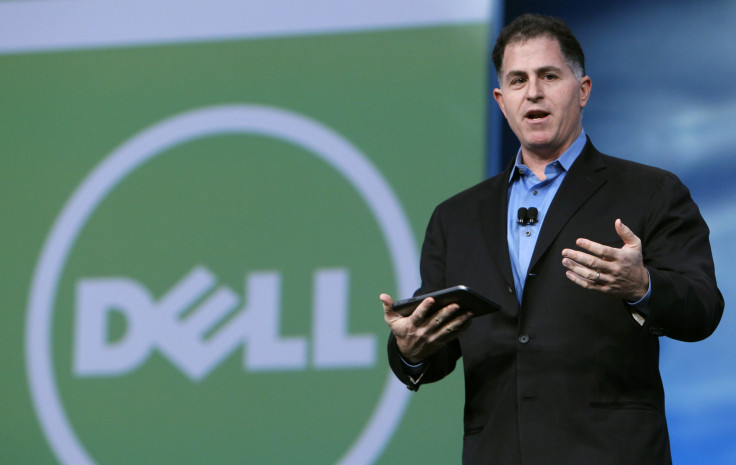Dell Sets $24.4B Buyout That Could Be Topped By Competing Bid

Dell Inc. (NASDAQ:DELL), the No. 3 PC maker, said it will be acquired by CEO Michael S. Dell and Silver Lake Partners in a $24.4 billion deal that’s the biggest private equity deal in technology. It could be superceded by a higher bid, if one emerges within 45 days.
The Round Rock, Tex.-based maker of PCs that’s increasingly shifting to selling services, storage and software, is valued around $23.3 billion, based on Tuesday's closing share price of $13.42, up 15 cents, still about $75 billion below its previous highs of eight years ago.
Dell’s board announced it would offer $13.65 a share for all outstanding shares, which it said was a 35 percent premium to the Jan. 11 price, when buyout talk rumors leaked and the shares began to rise.
Under the buyout, Silver Lake Partners, a Menlo Park, Calif., leader in technology private equity deals, would invest at least $1 billion in a new company that would acquire the existing Dell, along with Michael Dell’s 15.7 percent stake in the company. Then Dell, 47, would add his private investment firm’s $700 million to the pile, along with $2 billion from longtime partner Microsoft Corp. (NASDAQ:MSFT), the No. 1 software company.
The remainder would be financed from as much as $15 billion in loans syndicated by Barclays (NYSE:BCS), Bank of America (NYSE:BAC), Credit Suisse (NYSE:CS) and Royal Bank of Canada (NYSE:RY).
Still, the deal would present various problems for Dell, as well as its financial advisers, JP Morgan Chase (NYSE:JPM) and Evercore Partners (NYSE:EVR).
First, the deal would require rescheduling or refinancing the company’s current debt of about $9.3 billion. Current bondholders would have to agree to a deal, now that the “new” company would be saddled with additional debt that would have to be relinquished through operating cash flow. In the 12 months through last November, that was about $3 billion.
Then Dell would have to deal with its current cash and investments, valued around $14.2 billion, most of which is outside the U.S. Repatriating it would incur a hefty tax charge but the money is also useful because Dell has major global operations including factories in Brazil, China, Ireland, Malaysia and the Philippines.
Shares of Dell have gained nearly 30 percent in the past two months, when Bill Shope, who covers the company for Goldman Sachs (NYSE:GS), suggested Dell was interested in a buyout. The rationale would be that private status would free the company to transform itself into a better competitor against service providers headed by Hewlett-Packard Co. (NYSE:HPQ), the No. 1 computer company, and International Business Machines Corp. (NYSE:IBM), the No. 2 computer company.
A sale at the higher price would be a boon to Dell’s biggest current outside investors, mainly mutual fund complexes such as private Vanguard Group as well as T. Rowe Price (NASDAQ:TROW). But some smaller investors said they might vote against a sale because it might undervalue the company or burden it with high extra debts.
Shares of Dell rose 15 cents to $13.42 in Tuesday trading. A year ago, they were at $18.06.
© Copyright IBTimes 2024. All rights reserved.






















